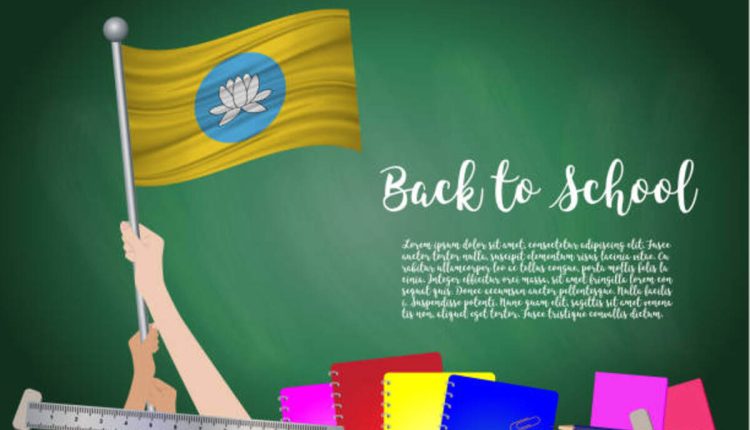Assessment of Learning in Hindi
Formative Assessment
Formative assessment is a technique designed to enable students to understand their learning needs better. Formative evaluation allows teachers to identify where students need more effort, as well as focus on meeting the goals set for each lesson and customizing lessons accordingly.
Teachers can utilize tracking sheets to monitor student progress. A tracking sheet allows teachers and students to quickly identify strengths and weaknesses while providing needed support for effective learning. Achieving student education goals is made possible when required skills are mastered before moving on to other topics – this also improves teaching methods by faculty members! Tracking sheets are user-friendly, making tracking sheet reuse much simpler.
Summative Assessment
Summative assessment is a method of measuring how well students have learned a subject at the end of an academic term or year, such as at its conclusion. It serves to ascertain whether students have grasped all the material covered and are prepared for the next step in their educational journey. Formative and summative tools used in summative assessment help instructors identify misconceptions, struggles, and learning gaps that must be addressed and support students with making deeper connections, synthesizing skills, or exploring concepts that underlie or drive course content and ideas.
Summative assessment is an integral component of teaching and learning. Teachers need a clear understanding of the differences between formative and summative assessments and how they complement one another; this is particularly crucial when designing multiple-choice questions in order to meet criteria while still giving students the freedom to express themselves creatively in ways that honor how they digested, constructed or mastered meaning. Furthermore, summative evaluation plays an integral part in teacher feedback loops, helping teachers evaluate student progress over time.
Utilizing a computer-aided assessment system for formative and summative assessments can make it easier for educators to measure student progress and identify areas for improvement. Furthermore, such systems allow educators to monitor individual student performance as well as provide targeted interventions for those struggling. It can be an invaluable asset in improving teacher practice as well as increasing classroom effectiveness.
Canadian graduate programs have recently adopted a novel assessment procedure for junior anesthesia trainees in graduate programs. It features both formative and summative evaluation procedures, with feedback provided by clinical supervisors and tutorial staff. Studies have demonstrated the efficacy of this new assessment approach for medical education, yet it may present its own challenges, such as the tension between judging students through a summative assessment on the one hand and providing formative feedback to aid learning on the other.
Reliability
Reliability refers to the ability of systems or measures to consistently produce consistent results, an essential aspect of testing that allows researchers to compare data sets and draw meaningful conclusions about validity. To achieve reliability in tests, variables must be clearly defined, and methods for rating or counting them must be described thoroughly; additionally, consistent administration ensures all respondents have access to equal information and training.
Reliable information is essential to sound decision-making, and an accurate measurement tool can assist researchers in making more informed choices about the effectiveness of their interventions. Not only can reliable measurements measure performance accurately, but they can also detect any biases present within samples so researchers can make adjustments more accurately when interpreting findings. Reliable measurement tools also play an essential role in assessing people’s intelligence, which helps researchers assess educational programs more effectively.
Reliability has many synonyms, including accuracy, fidelity, faithfulness, integrity, honesty, truthfulness, and trustworthiness. Conversely, its opposite can be dangerousness, such as disloyalty, falsity, and inconsistency.
To help you search the meaning of “reliability”, this English-Hindi dictionary can be an invaluable resource. With an expansive database of words and their pronunciation in both languages, this resource can provide valuable assistance for bilinguals looking to improve their linguistic skills while expanding their language abilities. In addition, its unique topics and idioms make this an incredibly informative dictionary; to discover even more, visit the Hamariweb website!
Involvement
Participation by learners is at the core of any practical learning experience. Teachers use formative assessments during lessons to check for understanding while providing timely feedback to their students about their progress – this allows teachers to adapt instruction accordingly and will enable learners to reflect upon their learning journeys. Students also complete summative real-world performance tasks that assess whether or not they achieved unit goals successfully.
Learning Hindi can be invaluable for students studying or working in India or having family members who speak it as their native tongue. Furthermore, being bilingual promotes cognitive development and problem-solving skills – qualities that many would benefit from possessing in life and the workplace.
Students from non-Hindi speaking backgrounds often struggle with Hindi due to foundational learning systems focusing on alphabets, grammar rules, and vocabulary rather than activating natural learning mechanisms in the brain.
Lack of an effective strategy when it comes to teaching Hindi can cause children to feel frustrated, leading them to develop negative associations with the language, leading them to struggle academically if they’re not native speakers of it, leading them down an unfamiliar path and leading them into further difficulties later in life. Therefore, in such instances, it would be best to find a tutor who will entertainly present Hindi so as to facilitate learning without becoming tedious or disengaging from it altogether – this way, education will become enjoyable, and children will take on other challenges in their life with greater ease!

